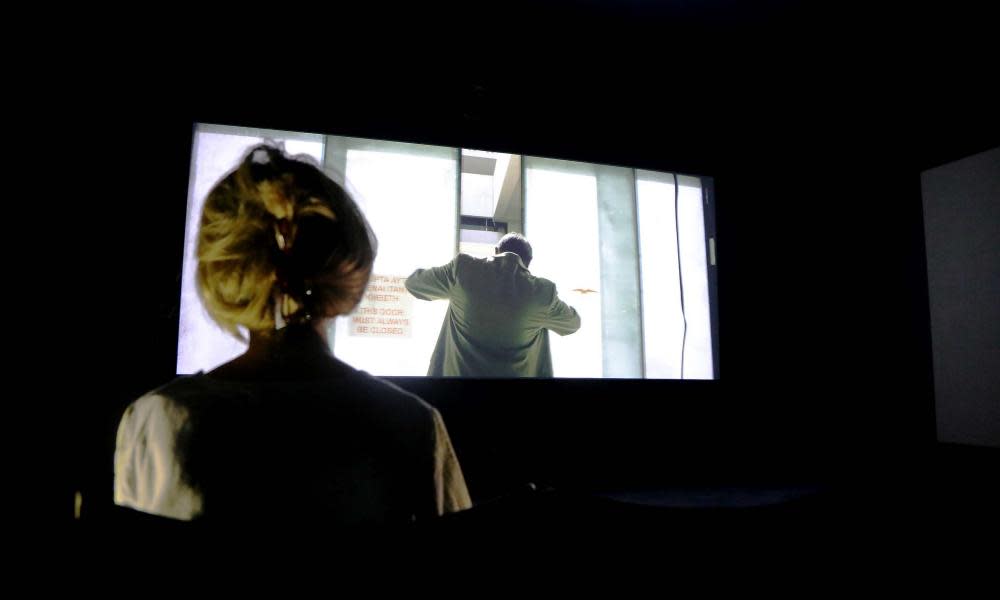Turner prize 2018 is 'most political exhibition in its history'

The Turner prize exhibition opens to the public this week with four films addressing issues that include police brutality, human rights abuses and queer identity.
Alex Farquharson, the director of Tate Britain, said it was the most political exhibition in its history. “It feels like a Turner prize that is very much of our times. I just think this is an incredibly political moment on all levels, in Europe, in America and many regions of the world. So the Turner prize brings all that home,” he said.
It is also the first Turner prize show to feature works that are all films, with visitors entering a large room with soft chairs, off which there are four dark entrances to the films.
The competition was created 34 years ago and regularly upsets traditionalists in the debate about what can be defined as art. This year, jurors have been drawn to serious, political artists. With one work entitled Volume Eleven (A Flaw in the Algorithm of Cosmopolitanism), it is not for people who want a quick scoot around some pretty things.
One of the contenders even stretches the definition of what an artist is. Forensic Architecture investigates international crime and injustice and is a collective of architects, film-makers, archaeologists, investigative journalists, lawyers and scientists. It is exhibiting its investigations surrounding the Bedouin population in the Naqab/Negev region of southern Israel – specifically, the events of 18 January 2017, when an attempt by police to clear an unrecognised village resulted in the deaths of two people.
Naeem Mohaiemen is showing works including a fictional film, Tripoli Cancelled, which follows the daily routine of a man who spends a decade alone living in an abandoned airport.
Charlotte Prodger is showing her autobiographical queer identity film Bridgit, which she made on her iPhone over the course of a year. The fourth artist, Luke Willis Thompson, is showing three works on 35mm film.
Some might accuse this year’s Turner prize of being heavy going but Farquharson said there was humour to be found. He pointed to Tripoli Cancelled depicting “a crazy Kafkaesque bureaucratic nightmare, which in itself is funny and absurd”. Farquharson said: “What is remarkable is that so many different languages of film making are represented.”
The prize changed its rules in 2017 to allow any artist working in the UK to be eligible and removed the upper age restriction of 50. That permitted Lubaina Himid, then 63, to become the oldest winner in the prize’s history in December.
This year’s exhibition opens at Tate Britain on Wednesday. The £25,000 winner will be named on 4 December at a ceremony broadcast live on the BBC.
• The Turner prize 2018 runs from 26 September until 6 January.

 Yahoo News
Yahoo News 
